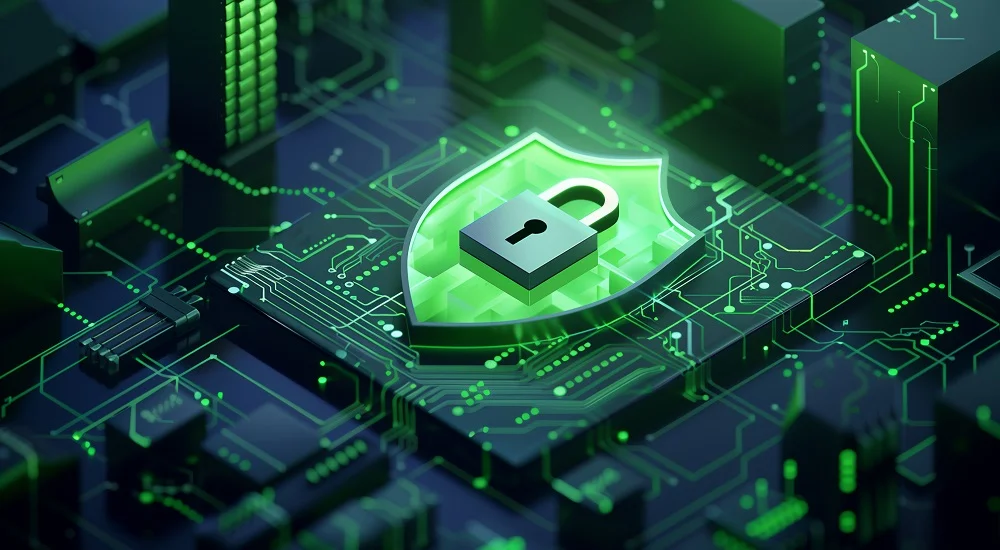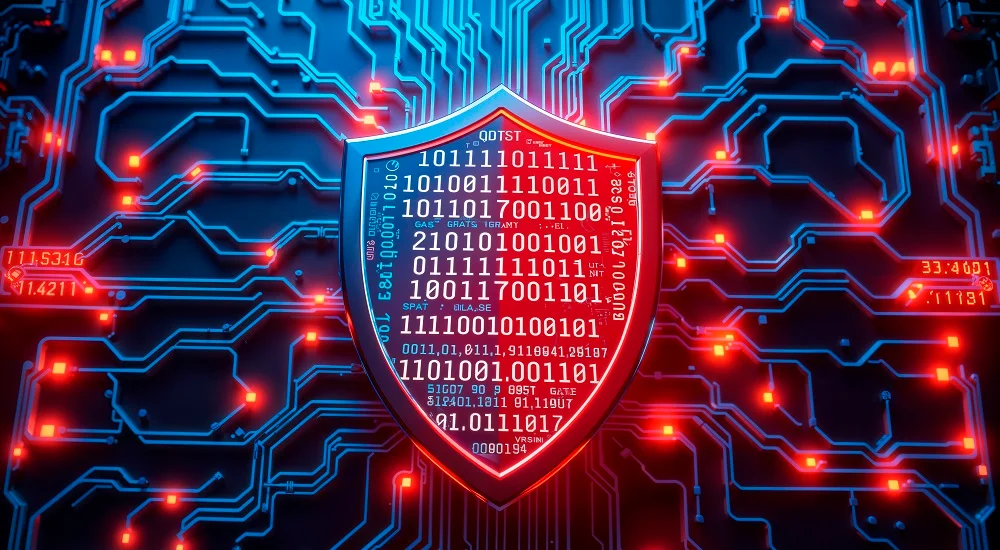The Palo Alto Networks Certified Network Security Engineer (PCNSE) certification is among the cybersecurity industry’s most prestigious and challenging credentials today. This expert-level certification validates the comprehensive knowledge and practical skills required to design, deploy, configure, maintain, and troubleshoot Palo Alto Networks Next-Generation Firewalls in complex enterprise environments.
As organizations increasingly face sophisticated cyber threats and seek robust network security solutions, the demand for PCNSE-certified professionals continues to surge; this certification is a gateway to enhanced career opportunities, higher salaries, and recognition as a cybersecurity expert. The certification examination, consisting of 75 multiple-choice questions to be completed within 80-90 minutes for $175, covers six critical domains ranging from core concepts to advanced troubleshooting scenarios, requiring candidates to demonstrate theoretical understanding and practical application of Palo Alto Networks technologies.
Understanding the PCNSE Certification Framework
The Palo Alto Networks Certified Network Security Engineer certification represents the pinnacle of network security expertise within the Palo Alto Networks ecosystem. This certification validates an individual’s ability to design, deploy, operate, manage, and troubleshoot Palo Alto Networks Next-Generation Firewalls precisely and confidently. The certification is specifically designed for network security engineers, systems engineers, systems integrators, and support engineers who work directly with Palo Alto Networks security platforms in daily operations.
The PCNSE certification goes beyond basic firewall configuration, requiring candidates to demonstrate mastery of advanced security concepts, threat prevention mechanisms, and complex network architectures. This comprehensive credential confirms that certified professionals have in-depth knowledge to tackle sophisticated cybersecurity challenges in modern enterprise environments. The certification serves as a badge of credibility, garnering recognition from peers, employers, and industry experts while opening doors to specialized roles within the cybersecurity domain.
Target Audience and Prerequisites
While there are no formal prerequisites for the PCNSE exam certification, candidates are strongly recommended to have substantial hands-on experience with Palo Alto Networks products. The certification is ideal for network security engineers, system integrators, system engineers, support engineers, and IT professionals managing firewall implementations. A minimum of six months of practical experience with Palo Alto firewalls is recommended to ensure candidates have the foundational knowledge necessary to succeed.
The certification targets professionals who want to demonstrate their expertise in managing Palo Alto Networks security platforms and who seek to advance their careers in cybersecurity. Whether you are a customer using Palo Alto Networks products, a partner implementing solutions, or a support professional troubleshooting complex issues, the PCNSE certification validates your capabilities and enhances your professional credibility.

Comprehensive PCNSE Exam Structure and Format
The PCNSE examination is a rigorous assessment to evaluate theoretical knowledge and practical application skills. Understanding the exam structure is crucial for adequate preparation and success on test day.
Exam Specifications
| Specification | Details |
| Exam Duration | 80-90 minutes |
| Number of Questions | 75 multiple-choice questions |
| Exam Format | Computer-based, proctored exam |
| Exam Fee | $175 USD |
| Passing Score | Approximately 70% |
| Exam Delivery | Available onsite and online proctored |
| Exam Provider | Pearson VUE |
| Language | English |
| Rescoring | Not supported |
The examination utilizes a computerized scoring system with final grades presented on a scale of 0 to 100. The time limit includes the sign-up process, identity verification, and NDA signing, meaning candidates have approximately 75-80 minutes for the examination questions. This time constraint emphasizes the importance of thorough preparation and efficient time management during the exam.
PCNSE Exam Environment and Logistics
The PCNSE exam can be taken at Pearson VUE testing centers worldwide or through online proctoring, providing candidates with flexibility. The computer-based format allows for immediate scoring and results notification upon completion. Candidates must bring valid identification and adhere to strict testing protocols to maintain exam integrity.
The examination environment is designed to simulate real-world scenarios where network security professionals must make quick, informed decisions under pressure. This approach ensures that certified individuals can effectively apply their knowledge in practical situations they will encounter in their professional roles.
Critical PCNSE Exam Domains and Knowledge Areas
The PCNSE exam certification covers six primary domains, each weighted according to its importance in real-world applications. Understanding these domains and their relative significance is essential for strategic exam preparation.
Domain Breakdown and Weightings
| Domain | Weight | Focus Areas |
| Core Concepts | 12% | Fundamental security components, interface types, authentication policies |
| Deploy and Configure Core Components | 20% | Initial firewall setup, network configuration, security policies |
| Deploy and Configure Features and Subscriptions | 17% | Advanced features, subscription services, threat prevention |
| Deploy and Configure Firewalls Using Panorama | 17% | Centralized management, templates, device groups |
| Manage and Operate | 16% | Day-to-day operations, monitoring, maintenance |
| Troubleshooting | 18% | Problem resolution, performance optimization, issue diagnosis |
Core Concepts Domain
The Core Concepts domain establishes the foundation for understanding Palo Alto Networks technologies and their integration within enterprise environments. This domain covers essential topics, including:
- Security Components: Understanding firewall components, Panorama components, and security subscriptions that enable advanced threat protection.
- Interface and Zone Types: Mastery of Layer 2 interfaces, Layer 3 interfaces, virtual wire interfaces, tap interfaces, sub-interfaces, tunnel interfaces, aggregate interfaces, loopback interfaces, decrypt mirror interfaces, and VLAN interfaces.
- Product Integration: Knowledge of how Palo Alto Networks products work together to improve PAN-OS services and enhance overall security posture.
- Advanced Technologies: Understanding of artificial intelligence operations (AIOps), telemetry, IPv6 implementation, and Internet of Things (IoT) security considerations.
Deployment and Configuration Domains
The deployment and configuration domains represent the most considerable portion of the examination, totaling 54% of the overall weight. These domains assess candidates’ ability to implement Palo Alto Networks solutions in various environments effectively.
- Deploy and Configure Core Components focuses on fundamental implementation skills, including initial firewall setup, network interface configuration, zone creation, and basic security policy development. Candidates must demonstrate proficiency in establishing secure network architectures and implementing appropriate security controls.
- Deploy, and Configure Features and Subscriptions evaluates advanced implementation capabilities, including threat prevention profiles, application identification (App-ID), user identification (User-ID), content identification (Content-ID), and WildFire malware prevention. This domain requires a deep understanding of security subscription services and their optimal configuration.
- Deploy and Configure Firewalls Using Panorama assesses centralized management capabilities, including template creation, device group management, policy distribution, and hierarchical configuration management. This domain is critical for enterprise environments requiring consistent security policies across multiple firewall deployments.
Management, Operations, and Troubleshooting
The final domains focus on ongoing management and problem-resolution capabilities essential for maintaining effective security postures in production environments.
- Manage and Operate day-to-day operational tasks, including log management, external services integration, tag creation and management, system monitoring, and traffic analysis. This domain emphasizes the practical skills required for effective firewall administration.
- Troubleshooting represents the most challenging domain, requiring candidates to diagnose and resolve complex issues, including tunnel configuration problems, decryption bypasses, high availability (HA) failover scenarios, and performance optimization challenges. This domain tests both technical knowledge and analytical problem-solving skills.
Strategic Preparation Methodologies
Successful PCNSE certification requires a comprehensive preparation strategy that combines theoretical study, hands-on practice, and strategic test-taking techniques. The certification’s complexity and breadth demand a structured approach to learning and skill development.
Hands-on Laboratory Experience
Practical experience with Palo Alto Networks technologies is essential for PCNSE success. Candidates should establish laboratory environments allowing extensive hands-on practice with firewall configuration, policy implementation, and troubleshooting scenarios. Cloud-based laboratory options provide cost-effective alternatives to physical hardware, enabling candidates to practice complex configurations without significant infrastructure investments.
Laboratory practice should focus on real-world scenarios that mirror the challenges encountered in production environments. This includes configuring high availability pairs, implementing complex NAT policies, establishing site-to-site VPN connections, and troubleshooting connectivity issues. Regular practice with different deployment scenarios builds the confidence and expertise necessary for exam success.
Comprehensive PCNSE Study Resources
Adequate preparation requires utilizing multiple study resources, including official documentation, training courses, practice examinations, and community forums. The official PCNSE study guide provides detailed coverage of exam topics and includes practice questions that help candidates assess their knowledge gaps. Instructor-led courses offer structured learning experiences with expert guidance, while digital learning paths provide flexible, self-paced study options.
Practice examinations play a crucial role in preparation by simulating the exam environment and helping candidates develop time management skills. Quality practice tests should include detailed explanations for correct and incorrect answers, enabling candidates to understand the reasoning behind each solution. DumpsBox offers comprehensive PCNSE practice materials that help candidates identify knowledge gaps and build confidence for the examination.
Time Management and Test-Taking Strategies
The 80-90-minute time limit requires efficient time management and strategic question approach techniques. Candidates should practice completing 75 questions within the allotted timeframe, allowing approximately one minute per question while reserving time for reviewing uncertain answers. Developing systematic approaches to question analysis, including identifying key information and eliminating incorrect answers, improves speed and accuracy.
Regular timed practice sessions help candidates build the stamina and focus required for the examination. This preparation should include simulating the complete exam experience, including the preliminary procedures and testing environment constraints that may impact performance on exam day.

Career Benefits and Professional Impact
The PCNSE certification delivers substantial career benefits that extend far beyond technical validation. As organizations increasingly prioritize cybersecurity investments, certified professionals command premium salaries and access to specialized career opportunities.
Salary and Compensation Advantages
Palo Alto Networks PCNSE-certified professionals earn significantly higher salaries than their non-certified counterparts. The certification is concrete evidence of advanced technical capabilities and commitment to professional development, making certified individuals valuable assets in competitive job markets. Organizations recognize the expertise represented by PCNSE certification and compensate accordingly through higher base salaries, performance bonuses, and career advancement opportunities.
The global recognition of Palo Alto Networks as a cybersecurity leader enhances the value of PCNSE certification across international markets. This recognition creates opportunities for career mobility and positions certified professionals for leadership roles in cybersecurity organizations worldwide.
Professional Credibility and Recognition
Palo Alto Networks PCNSE certification establishes professional credibility that extends throughout the cybersecurity industry. The rigorous examination process and comprehensive knowledge requirements ensure that certified individuals possess genuine expertise in network security engineering. This credibility facilitates professional networking opportunities, speaking engagements, and thought leadership positions within the cybersecurity community.
The certification also provides access to exclusive Palo Alto Networks partner programs and technical resources that support ongoing professional development. These resources include advanced training opportunities, beta testing programs, and direct access to product development teams that enhance professional growth and industry influence.
Recertification and Continuous Learning
The PCNSE exam certification maintains its relevance and value through a structured recertification process, ensuring certified professionals stay current with evolving technologies and threat landscapes. Understanding recertification requirements is essential for long-term career planning and professional development.
Recertification Requirements
Palo Alto Networks PCNSE certification remains valid for two years from the date of successful exam completion. To maintain active certification status, professionals must retake the PCNSE examination before expiration. This requirement ensures that certified individuals stay current with technology updates, new features, and evolving security practices.
The recertification process maintains the same rigorous standards as initial certification, requiring candidates to demonstrate continued competency across all examination domains. This approach ensures that PCNSE certification consistently represents current expertise rather than outdated knowledge from previous technology generations.
Ongoing Professional Development
Successful PCNSE professionals engage in continuous learning activities that extend beyond recertification requirements. This includes participating in Palo Alto Networks training programs, attending industry conferences, contributing to professional communities, and pursuing additional certifications that complement PCNSE expertise.
The rapidly evolving cybersecurity landscape requires certified professionals to maintain awareness of emerging threats, new technologies, and evolving best practices. Regular engagement with technical documentation, security research publications, and industry forums supports this ongoing learning process and enhances professional effectiveness.
PCNSE about Frequently Asked Questions (FAQs)
What is the passing score for the PCNSE exam?
The Palo Alto Networks PCNSE exam requires a minimum passing score of approximately 70%, though exact thresholds may vary slightly. Scores are weighted across six domains, and candidates must demonstrate competency in each area to pass.
How long should I study to prepare for the PCNSE certification?
Most professionals require 3–6 months of preparation, combining hands-on lab practice, official study guides, and practice exams. Beginners may need up to a year, while experienced candidates often require less time. DumpsBox offers targeted practice materials to streamline preparation.
What topics are covered in the PCNSE exam?
The exam focuses on six domains:
- Core Concepts (12%)
- Deployment (20%)
- Features/Subscriptions (17%)
- Panorama Management (17%)
- Operations (16%)
- Troubleshooting (18%)
Topics include firewall configuration, threat prevention, HA deployments, and troubleshooting methodologies.
How does PCNSE differ from PCNSA?
Palo Alto Networks PCNSA is an entry-level certification focusing on basic firewall administration, while PCNSE validates advanced skills in the design, Deployment, and troubleshooting of Palo Alto Networks ecosystems. PCNSE also requires a more profound knowledge of Panorama and complex network architectures.
What are the recertification requirements for PCNSE?
Palo Alto Networks PCNSE certifications expire after two years. Recertification mandates retaking the exam; alternative certifications like PCCSE do not renew PCNSE status. Extensions were granted during COVID-19, but standard policies now apply.
Conclusion
The PCNSE exam certification represents a significant professional achievement that validates expertise in one of the cybersecurity industry’s most respected technology platforms. Success in this challenging certification requires comprehensive preparation, substantial hands-on experience, and strategic study approaches that effectively address all examination domains. The rigorous requirements ensure that PCNSE-certified professionals possess the knowledge and skills to design, implement, and maintain robust network security solutions in complex enterprise environments.
For cybersecurity professionals seeking to advance their careers and demonstrate their expertise with Palo Alto Networks technologies, the PCNSE certification provides a clear pathway to professional recognition and enhanced opportunities. The investment in certification preparation, including time, effort, and financial resources, delivers substantial returns through improved career prospects, higher compensation, and professional credibility, opening doors to cybersecurity industry leadership roles.
